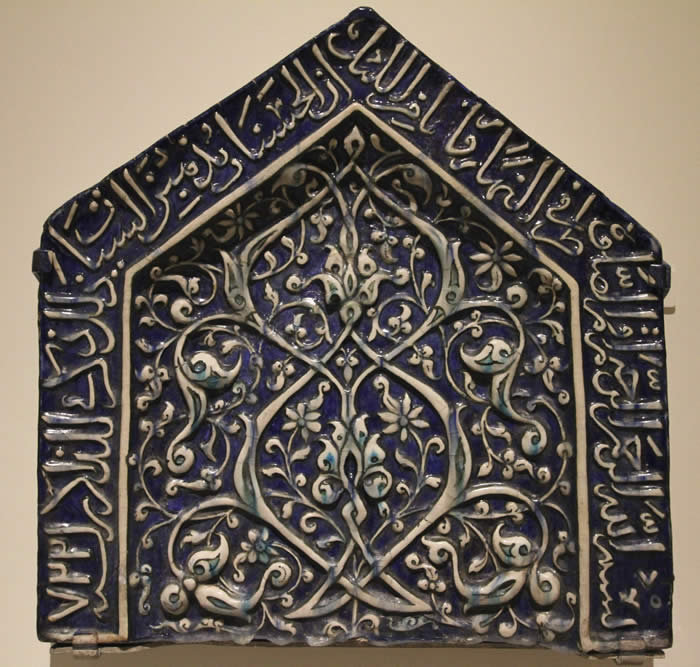






The Names of God and Energy
The question of al 'Arabi's Attributes, or names, of God, and their exact nature, is perhaps profoundly misunderstood.
Because mankind understands such things using conceptual tools — that is, words, ideas — he fails to understand the nature of these properties.He thinks they are concepts, that is, abstractions without an objective physical existence.
Nothing could be further from the truth. Gurdjieff explained to Ouspensky that everything is material. Things such as knowledge, he points out, are not just concepts. They are material things. What sort of material, he did not explain. But this is one of those things he said which can definitely be explained.
The attributes of God are energies. They are, in other words, each a specific energetic force, an action or movement of a material nature that takes place as the emanations of the Essence encounter the acts, or consequences of the material or created reality. All electromagnetic emanations, both those identified and as yet unidentified (for example, dark energy) by science, belong to the category of attributes or names.
What this means is that specific attributes, such as Desire, Power, Mercy, Compassion, or Knowledge (which Gurdjieff specifically mentions in the above quote) are all various forms of energetic expression. Desire cannot be expressed unless an energy moves within a man to express it. Compassion, equally, cannot move within a man unless an electromagnetic energy moves to express it. And the order of expression of Desire or Compassion that a man has is in direct proportion to the level of the energy that expresses it.
Desire, Compassion, and so on have their own individual octaves. That is to say, any one of the attributes of God undergoes, after its emanation from the source, a lawful progression and increase in its rate of vibration according to the law of octaves as it encounters and interacts with the material world. This explains why one man can be more, and another less, compassionate.
All of the higher energies that Michel and Jeanne de Salzmann encouraged Gurdjieff's pupils to work with in their inner efforts belong to this category of energies. A higher level of energy will automatically produce a completely different result in a man than the lower level of the same energy. The easiest way to explain this will be by taking the example of compassion. Compassion has its own gradations of energetic expression, according to the level of development of the man who expresses it. One man hungers to be compassionate; another is forceful about it. Yet neither one of them has a conscious form of compassion active in them. A much greater effort would be required for that.
Higher levels of energy that emanate from the names of God produce completely different results in mankind than the levels of energy one usually encounters that manifest these forces. Each one of them is, in fact, one of the "higher hydrogens" Gurdjieff spoke about in In Search of the Miraculous. We are all, as it happens, familiar with these "higher hydrogens," even though they appear to be mysterious chemical formulas, rather than objective forces we may have encountered. If we renamed them according to the various attributes that can be assigned to them, we would discover that they meant many things we are already familiar with, as explained above. The difference is that the higher the rate of vibration, the more profound and unfamiliar of the effect of these attributes is on a man.
Thus, an ordinary man might call himself to prayer using the force of his will (represented, in the enneagram, by the note fa.) A man who truly developed this power would have a great deal of force, and perhaps even be admired by his peers. But he would still be at a level where, although it appeared to him (and to others) that he was initiating the action of prayer, it was mechanical.
Only if a man passes from fa to sol, that is, the level where real Being appears, will prayer become an active and intelligent force in him; and at this point, a man does not pray, he is prayed. This means that instead of discovering the intelligence of prayer, prayer discovers the intelligence of the one who prays. In this way, prayer becomes an active force that a man no longer feel separated from; it is a level of vibration in his body that instructs him.
All of the many stories of masters who encountered energy that taught them relate precisely to this concept.
This brings us to one vitally important final point.
All of the movements Gurdjieff taught his pupils are meant to describe these various aspects of God, and relate them not to intellectual experiences, but tactile expressions of energy in relationship. Thus, compassion is a tactile expression of energy in relationship, not something you do to someone; as are mercy, kindness, intelligence, and any one of ten thousand other things we might care to mention that we think we "do."
Seeing ourselves as expressions of force, or energy, that is, the names of God, or a divine action, in movement is essential to understanding our nature.






